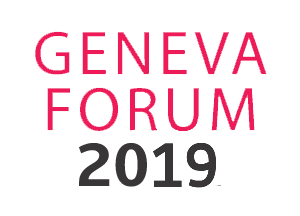GENEVA FORUM 2019
FORUM ON HUMAN RIGHTS SITUATION IN REGIONS UNDER THE PRC
Areas of focus: China, Tibet, East Turkestan (Ch: Xinjiang), Southern Mongolia and Hong Kong
Key organizers: Office of Tibet Geneva and Human Rights Desk, Department of Information and International Relations, Central Tibetan Administration
About the Forum:
The Geneva Forum on Human Rights provides a unique platform for human rights experts, practitioners, academics, activists, governments, diplomats, think tanks, civil society groups and affected groups to monitor and evaluate the human rights situation in regions under the rule of the Chinese Communist Party (CCP). Specifically, the areas of focus include Tibet, Xinjiang, Southern Mongolia, and Hong Kong. By bringing together a diverse group of individuals, organizations and institutions, the Forum shall examine a coordinated multilateral approach to challenge and improve the CCP’s worsening human rights record.
2019 Central Theme
The cross-cutting theme for 2019 is “China’s High-tech Repression & Freedom of Religion” AI facial recognition, biometric registration, the grid system of social management, GPS tagging, social credit system, and drones disguised as birds. This is the reality of high-tech state surveillance by the CCP, which has made Tibet the second least free country in the world and over 1 million Uyghurs detained in concentration camps.
Through the high-tech oversight mechanisms, the CCP is taking the suppression of religious worship in China to a whole new level. While China’s Constitution protects the freedom of religious belief, the CCP, which is officially atheist, has tightened its grip over religion through new surveillance technology. Evidence is mounting about potential adverse human rights impact on religious minorities in China, including Tibetan-Buddhists, Protestants, Muslims, Falun Gong practitioners and Catholics.
What is even more worrisome is that the CCP is relentlessly exporting the digital systems, training and the technological infrastructure to other repressive regimes in places like Africa and the United Arab Emirates. The complexity, speed and much uncertainty around artificial intelligence present new, heightened risks to the future of international human rights.
Further, the CCP’s control over the appointment of religious heads as underscored by Vatican’s recent decision to recognize the legitimacy of bishops appointed by the CCP has larger ramifications. The Beijing-Vatican deal gives the CCP the legitimacy to appoint not only Catholic bishops but also Protestant priests, Muslim imams, Jewish rabbis, Hindi priests, and Buddhist leaders (i.e. the next Dalai Lama of Tibet).
Objectives
The 2019 Geneva Forum on Human Rights aims to identify the main challenges advanced technology presents to the future of human rights. Specifically, the Forum shall examine the repression of people of faith in China in the context of the CCP’s growing use of 5.0 technologies to tighten its grip on over religion. The Forum shall, inter alia, bring together China focused human rights groups and representatives of various religious groups with the goal of setting up a coordinated multilateral approach in challenging China’s deteriorating human rights record. The Forum shall also examine the role of governments, private sectors, international organizations, and civil society groups in addressing the technological threat to human rights.
Methodology
An intensive full-day forum will be structured into four different panels, each with a specific area of focus. The panel discussion will take the form of a participatory dialogue (no speeches) on the challenges and the solutions to China’s high-tech surveillance of religious groups. There will be an eyewitness account by a Tibetan religious figure about the lack of religious freedom in Tibet.
Panel 1: Technology and the Future of Human Rights
– Overall impact of repressive technology on human rights; i.e. the right to privacy, freedom of expression, freedom of movement, etc
Panel 2: High-Tech Repression of People of Faith in China
– Tibetan-Buddhists; Protestants; Muslims; Falun Gong practitioners; and Catholics
Panel 3: Beijing’s Export of Surveillance Technology
– Case study of importing countries
Panel 4: Combating Fears of a China-Led Orwellian World
– What can be done to address the problem? What are the responsibilities of governments, private sectors, civil society groups, international organizations, etc.
Expected Outcomes
The Geneva Forum expects to build a network of organizations and experts focusing on human rights and religious freedom in China and develop coordinated efforts to challenge and improve China’s human rights record. It also expects to strengthen mainstream media attention and public discourse on the deteriorating human rights record in the most remote parts under the rule of the CCP.
Witness account:
